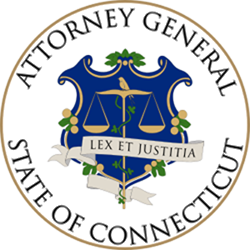Attorney General's Opinion
Attorney General, Richard Blumenthal
July 1, 1993
Allan A. Crystal, Commissioner
Department of Revenue Services
92 Farmington Avenue
Hartford, CT 06105
Dear Commissioner Crystal:
This is in response to your letter dated April 20, 1993, in which you request a formal opinion of the Attorney General concerning an issue arising under 1992 Conn. Pub. Acts No. 92-184 (hereinafter referred to as "the Act").
You state as follows:
The issue involves the room occupancy tax, a portion of which funded the visitors and convention districts and coliseum authorities under Conn. Gen. Stat. §§ 7-136a to 7-136c, inclusive (repealed by e 18 of the Act), and will now fund tourism districts and coliseum authorities under § 15 of the Act.
As you can tell from the enclosed correspondence, the issue essentially is whether the Stamford Coliseum Authority gets 4.5% of the rent from transfers of room occupancy in Stamford hotels and lodging houses before July 1, 1993, notwithstanding the fact that the amount will be paid over to the Authority after the effective date of §18 of the Act, or only three-quarters of that amount, precisely because of the fact that the amount will be paid over to the Authority after the effective date of § 15 of the Act.
The letter from the Stamford Coliseum Authority (hereinafter "Authority") which you enclosed with your request states that this issue arises because there may be up to a three month delay between the time that the tax is generated and the time that it is received by your Department and is paid over to the Authority. The Authority has taken the position that taxes generated prior to July 1, 1993, should be distributed in accordance with the prior law, notwithstanding the fact that they will be paid over after the effective date of the new law and the repeal of the old law.
The issue raised, therefore, may be restated as whether section 15 of the Act or Conn. Gen. Stat. § 7-136b controls the distribution of these taxes generated by sales prior to July 1, 1993, but not distributed by your Department until after July 1.1
In answer to your question, then, it is our opinion that all taxes generated from sales prior to July 1, 1993, must be distributed in accordance with the old law and all taxes generated from sales on or after July 1, 1993, must be distributed in accordance with section 15 of the Act as amended.
Our conclusion is based upon the plain language of section 19 of the Act. Section 19 of the Act states as follows:
This act shall take effect July 1, 1992, except sections 3 and 9 to 18, inclusive, shall take effect July 1, 1993, provided sections 5 to 8, inclusive, shall be applicable to rentals or leases of motor vehicles entered into on or after July 1, 1992.
(Emphasis added).
Therefore, the legislature specifically provided that both section 15 of the Act, which sets forth the new scheme for distribution of the funds, and section 18, which repeals sections 7-136a to 7-136c of the General Statutes, which sets forth the old distribution scheme, shall take effect on July 1, 1993.
The words "take effect" are not defined in the statute. Therefore, they must be given their ordinary and commonly expressed meanings. See Conn. Gen. Stat. § 1-1 and Caldor, Inc. v. Heffernan, 183 Conn. 566, 570, 440 A.2d 767 (1981). Black's Law Dictionary (6th Ed. 1990) defines these words as meaning to "go into operation."
The Connecticut Supreme Court has recently stated in Bolt Technology v. Comm. of Revenue Services, 213 Conn. 220, 567 A.2d 371 (1989) quoting State v. Smith, 194 Conn. 213, 479 A.2d 814 (1984) that:
"The primary rule of statutory construction is that '[i]f the language of the statute is clear, it is assumed that the words themselves express the intent of the legislature; and thus there is no need to construe the statute. [citations omitted]'"
Id. at 229.
The legislature, in section 19 of the Act, clearly and unambiguously expressed its intent that section 15 should not become effective until July 1, 1993. It also expressed its intention, in this section of the Act, that Conn. Gen. Stat. § 7-136(b) should not be repealed or rendered ineffective until that date. Conn. Gen. Stat. § 7-136b(b) provides in pertinent part that
such municipality or district shall be entitled to receive, for the purposes stated in said section 7-136c, a portion of the sales tax imposed upon gross receipts from sales within the meaning of subdivision (h) of subsection (2) of section 12-407, by any hotel or lodging house located in such municipality or district, which is equal to (1) four and one-half per cent of such gross receipts in the case of any such municipality and (2) one and one-half per cent of such gross receipts in the case of any such district. In the event a municipality or district elects alternative (b) under this section, the commissioner of revenue services shall segregate and pay over to such municipality or district that portion of the sales tax to which such municipality or district is entitled hereunder related to sales within the meaning of said subdivision (h) of subsection (2) of section 12-407 on or after July 1, 1978....
(Emphasis added.)
This provision of the General Statutes was fully effective until June 30, 1993. This means that the municipalities or districts are "entitled to receive" those portions of the sales tax set forth above, for the purposes stated in Conn. Gen. Stat. § 7-136c, from sales up until June 30, 1993.
It must also be noted that on July 1, 1993, section 18 of the Act repealed Conn. Gen. Stat. § 7-136a which is the enabling legislation that authorized the creation of the convention and visitors commissions, which were superseded on July 1, 1993, by the new tourism districts. Therefore, since the convention and visitors commissions no longer exist after July 1, 1993 distribution to them of the sales tax collected prior to July 1, 1993 cannot be made after that date.2 However, under Conn. Gen. Stat. § 7-136b, the municipalities and municipal districts are still entitled to receive the funds in question to the extent that they are able to use them for the purposes stated in Conn. Gen. Stat. § 7-136c. For instance, they are entitled to receive these funds to the extent necessary to wrap up the financial affairs of their convention and visitor's commissions. Any funds remaining from taxes generated from sales prior to July 1, 1993, that cannot be used by the municipalities for the purposes stated in section 7-136c must be distributed in accordance with the new law.
In summary, it is our opinion that the funds in question must be distributed in accordance with the law that was in effect at the time of the sales which generated the taxes. Since Conn. Gen. Stat. § 7-136b was the only law in effect until June 30, 1993, all taxes generated by sales on or before that date must be distributed in accordance with that statute. However, in regard to those entities no longer in existence after July 1, 1993 such funds need only be distributed to the respective municipalities to the extent such funds are used for the purposes stated in Conn. Gen. Stat. § 7-136c. It follows that all taxes generated by sales after June 30, 1993, must be distributed in accordance with the new law.
We trust that this answers your question.
Very truly yours,
RICHARD BLUMENTHAL
ATTORNEY GENERAL
Robert L. Klein
Assistant Attorney General
RB/RLK/db
1 At the outset, we note that section 15 of the Act to which you refer in your request, was amended by 1992 Conn. Pub. Acts No. 92-11, e 58 (May Sp. Sess.) which was effective upon passage on June 1, 1992. Section 58 states that "Section 15 of Public Act 92-184 is repealed and the following is substituted in lieu thereof". It then sets forth the exact same language as appears in section 15, except that it directs that the funds which were previously allocated to the Authority for the benefit of the Stamford Center for the Arts in section 15, will go directly to the Stamford Center for the Arts.
Even though, the prefatory language in section 58 is in the form of repeal and substitution, the Connecticut Supreme Court has noted in State v. Kozlowski, 199 Conn. 667, 509 A.2d 20 (1986) that:
Similarly, although we have not previously had occasion to construe e 2-30b, we have noted in another context that "[w]hether a new provision is in the form of a new enactment repealing the old ... or the form of an amendment of the old is immaterial and depends on the preference of the draftsman." Accordingly, we too have consistently characterized as amendments acts which included the prefatory language of repeal and substitute.
Id. at 675-676 (emphasis added) (citations omitted).
Therefore, we conclude that by enacting section 58 of 1992 Conn. Pub. Acts No. 92-11 (May Sp. Sess.), the legislature only intended to amend section 15 of the Act, in the manner indicated, rather than repeal it, and that this change does not affect the effective date of section 15 or the issue raised in your request, as rephrased.
2 The coliseum authorities, however, remain in existence after July 1, 1993.


